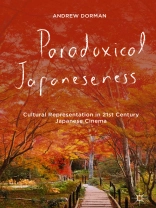This book offers insightful analysis of cultural representation in Japanese cinema of the early 21st century. The impact of transnational production practices on films such as
Dolls (2002),
Sukiyaki Western Django (2007),
Tetsuo: The Bullet Man (2009), and
13 Assassins (2010) is considered through textual and empirical analysis. The author discusses contradictory forms of cultural representation – cultural concealment and cultural performance – and their relationship to both changing practices in the Japanese film industry and the global film market. Case studies take into account popular genres such as J Horror and jidaigeki period films, as well as the work of renowned filmmakers Takeshi Kitano, Takashi Miike, Shinya Tsukamoto and Kiyoshi Kurosawa.
Inhaltsverzeichnis
Introduction.- Chapter 1: Cultural Specificity and Globalization.- Chapter 2: (Cult)ural Hybridity.- Chapter 3: Concealing Japan in J Horror.- Chapter 4: Utilizing International Film Festivals.- Chapter 5: 21st Century Jidaigeki and Commercial Ownership.- Conclusions
Über den Autor
Andrew Dorman is a freelance writer and English language tutor who received a Ph D in Film Studies from the University of St Andrews, UK. He has taught film studies at the universities of St Andrews and Edinburgh, and writes on a range of subjects including Japanese cinema and sexuality in film.











